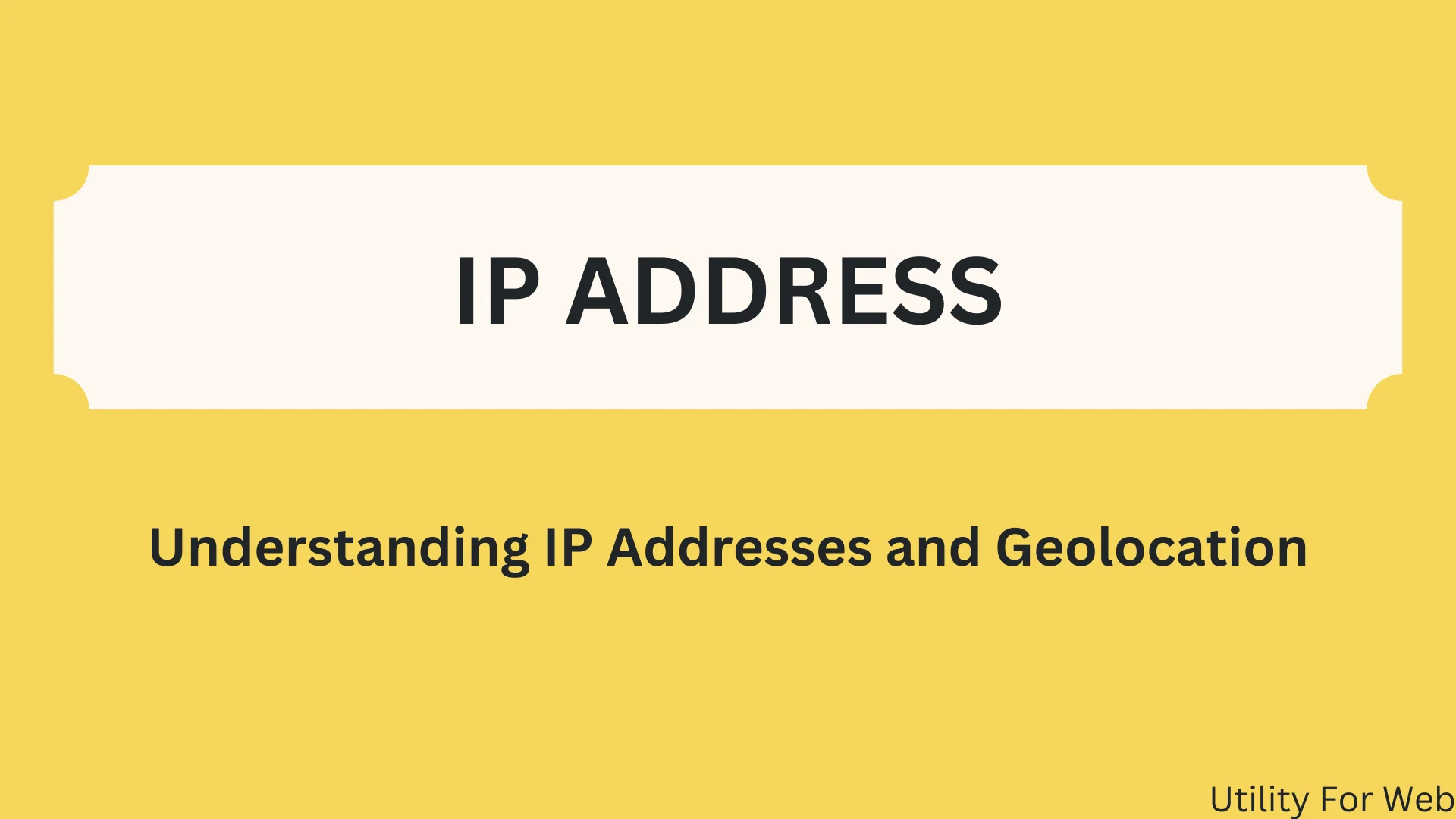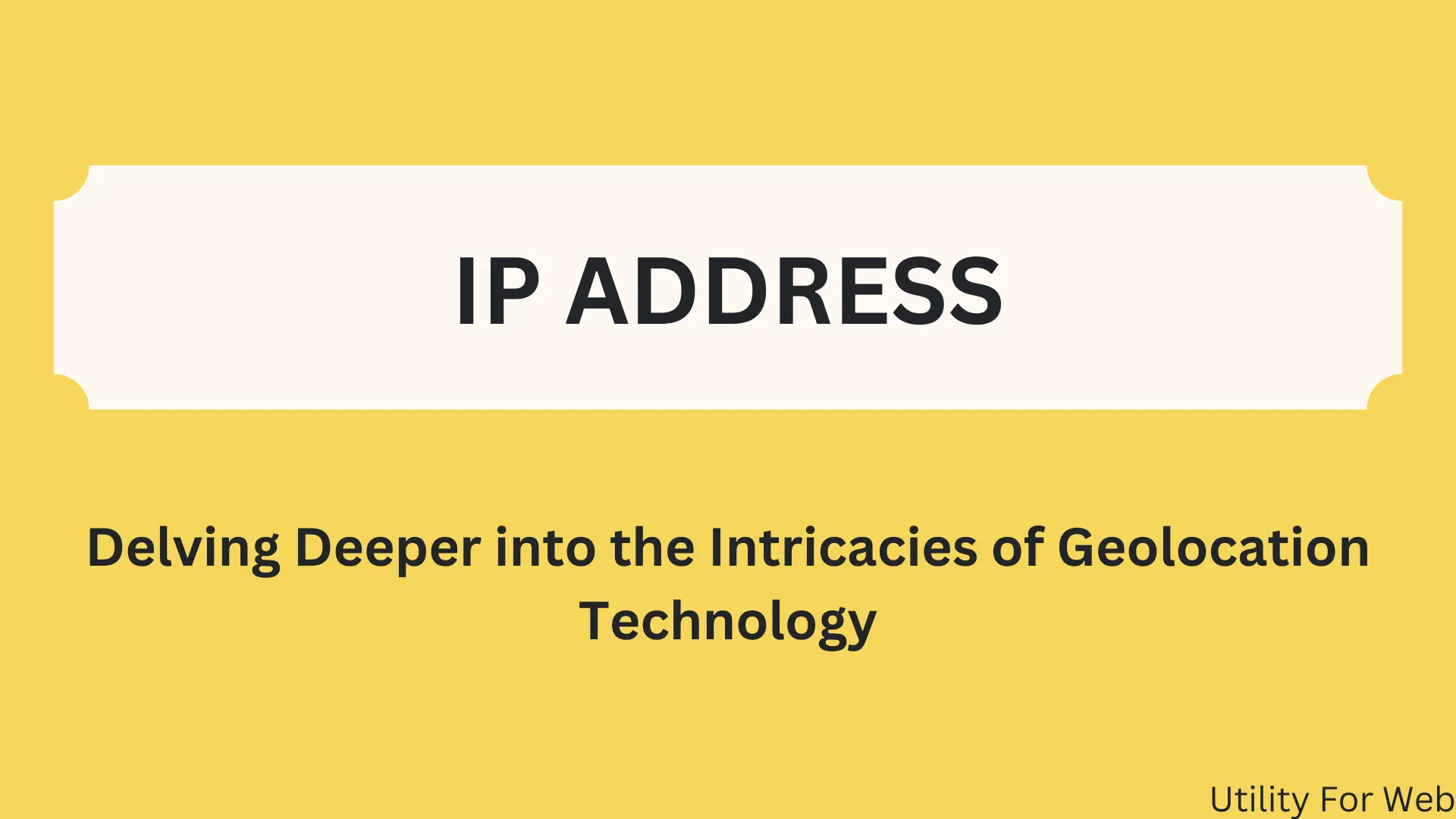
What Is My IP? Find Your IP Address with Accurate Internet Address Lookup
In today's interconnected world, understanding IP addresses and their associated geolocation is crucial. An IP address, or Web Convention address, is a numerical name relegated to each gadget associated to a computer arrange that employments the Web Convention for communication. This IP address not only facilitates communication across the internet but also holds valuable information about your device's geographical location and your internet service provider (ISP). In this blog, we'll delve into what an IP address is, the difference between IPv4 and IPv6, and how geolocation technology works.
What is an IP Address?
An IP address, or Web Convention address(Internet Protocol address), is a numerical name alloted to each gadget associated to a computer arrange that employments the Web Convention for communication. Think of it as the digital equivalent of a postal address, enabling data to find its way to the correct device on a network.
There are 2 main types of Internet Protocol addresses in use today:
- IPv4: The fourth version of the Internet Protocol, IPv4 uses a 32-bit address scheme allowing for over 4 billion unique addresses. An IPv4 address looks like this:
192.168.1.7. - IPv6: Due to the exponential growth of internet-connected devices, the pool of IPv4 addresses is being exhausted. IPv6, the most recent version, uses a 128-bit address scheme, providing a virtually unlimited number of unique addresses. An IPv6 address looks like this:
2405:201:203d:5072:6482:7f81:9f1d:822a.
The Importance of Geolocation
Geolocation refers to the identification of the real-world geographic location of an object, such as a device connected to the internet. By using geolocation services, it's possible to determine various details about an IP address, including the country, region, city, postal code, timezone, and even the ISP.
For example, if you perform an internet address lookup on 49.43.35.247, you'll find that it originates from Surat, Gujarat, in India. Additionally, geolocation can reveal the local currency, time zone, and the ISP responsible for the connection.
How Geolocation Works
Geolocation technology leverages databases that map IP addresses to physical locations. These databases are compiled through various methods, including:
- Voluntary user input: Users voluntarily provide their location data to services, which is then correlated with their IP address.
- GPS and Wi-Fi: Devices with GPS capabilities or that connect to known Wi-Fi networks can provide location data.
- Data mining: Companies analyze vast amounts of internet traffic data to estimate the geographical location of IP addresses.
Applications of IP Address and Geolocation Data
Understanding IP addresses and their geolocation capabilities can be valuable for both individuals and businesses. Here are some key applications:
- Personalization: Businesses can use geolocation data to tailor their services and content to specific regions. This enhances user experience by providing relevant information based on the user's location.
- Targeted Advertising: Marketers can deliver region-specific ads to increase the effectiveness of their campaigns. Knowing where potential customers are located allows for more precise targeting.
- Cybersecurity: Identifying the geographical origin of an IP address can help in detecting and mitigating cyber threats. For instance, if a login attempt is made from an unusual location, additional security measures can be implemented.
- Compliance: Certain regulations require businesses to restrict access to content based on the user's location. Geolocation helps in ensuring compliance with these laws.
Protecting Your Privacy
While geolocation can be beneficial, it's important to be aware of the privacy implications. Here are some tips to protect your privacy:
- Use a VPN: A Virtual Private Network (VPN) masks your IP address by routing your internet traffic through a server in a different location.
- Disable Location Services: On your devices, disable location services when not needed to prevent apps from accessing your location data.
- Be Cautious with Public Wi-Fi: Public Wi-Fi networks can be vulnerable to attacks. Use a VPN or avoid accessing sensitive information on these networks.
Conclusion
Understanding IP addresses and geolocation is essential in our digital age. Whether you're asking, "What is my IP?" or performing an internet address lookup for commerce purposes, knowing the complexities of IP addresses and their topographical suggestions can give profitable experiences. By leveraging this information, you can enhance your online experience, improve cybersecurity measures, and deliver targeted services and content.



